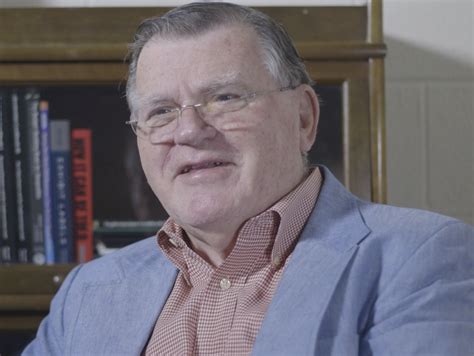A Quote by John Stott
Do not be content with a static Christian life. Determine rather to grow in faith and love, in knowledge and holiness.
Related Quotes
Christian faith is exclusivistic. Christian faith lays claim upon our lives. The sanctity of life, what we do with a life, is very definitive in the Christian faith, what we do with sexuality, what we do with marriage, all of the fundamental questions of life have points of reference for answers, and people just have an aversion for that. That I think is the biggest reason they feel hostile towards the Christian faith.
It is an item of faith that we are children of God; there is plenty of experience in us against it. The faith that surmounts this evidence and is able to warm itself at the fire of God's love, instead of having to steal love and self-acceptance from other sources, is actually the root of holiness: It is a fatal mistake to think of holiness as a possession which we have distinct from our faith... Faith is the very highest form of our dependence on God.
This, then, is the foundation of sanctification in Reformed theology. It is rooted, not in humanity and their achievement of holiness or sanctification, but in what God has done in Christ, and for us in union with him. Rather than view Christians first and foremost in the microcosmic context of their own progress, the Reformed doctrine first of all sets them in the macrocosm of God's activity in redemptive history. It is seeing oneself in this context that enables the individual Christian to grow in true holiness.
A living faith is always on trial; we call it faith for that reason. When I read in some alarmist book that the Christian faith is now on trial, or "at the crossroads," my impulse is to answer, Why Not? Does anybody know a time when the Christian faith was not on trial, or when the Christian life was a simple walkover, with neither principalities nor powers to dispute its advance?
Wrath, unlike love, is not one of the intrinsic perfections of God. Rather, it is a function of God's holiness against sin. Where there is no sin, there is no wrath-but there will always be love in God. Where God in His holiness confronts His image-bearers in their rebellion, there must be wrath, or God is not the jealous God He claims to be, and His holiness is impugned. The price of diluting God's wrath is diminishing God's holiness.
Faith, Hope & Love. Faith is directed towards God, love towards others (both within the Christian fellowship and beyond it) and hope towards the future, in particular, the glorious coming of our Lord Jesus Christ. Similarly, faith rests of the past; love works in the present; hope looks to the future. Every Christian without exception is a believer, a lover and a hoper. Faith, hope and love are three sure evidences of regeneration by the Holy Spirit.

































